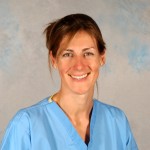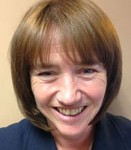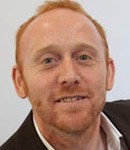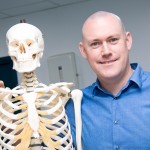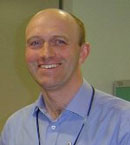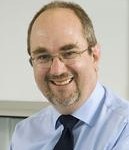 The FMS Education, Research, Development and Practice Unit has now been in existence for over a year and we continue to run a full programme of events. Attendance at our Journal Club continues to be strong and so far this year we have had stimulating presentations from Jo Matthan and Lindsay Ferrie. These meetings provide us with opportunities to look at papers on a wide range of teaching issues and discussions are always lively and thoughtful. If you have not been able so far to attend then please do come or if you want to present a paper on a learning and teaching topic that you have found interesting then your contribution will be warmly welcomed. Our learning and teaching seminar programme this semester has included talks from Concha Martinez from the Dental School in Madrid talking about dental education in Spain, Stephen Billett from Queensland talking about workplace learning and Hamish McLeod from Edinburgh talking about e-learning. The seminar programme continues in the New Year and the programme will be found elsewhere in this newsletter. Can I remind you that we are always seeking seminar speakers so if there is somebody that you would like to invite or if you wish to give a seminar yourself then, again, we would be pleased to hear from you. Finally, our first Faculty learning and teaching forum was held in December when we heard about a wide range of work-in-progress projects from across the Faculty reflecting our diverse interests in learning and teaching. This range of interests was also very much to be seen in the applications made to our small projects fund and I congratulate the successful applicants and wish them well in their projects. Finally, the next cycle of EQUATE is well under way with strong representation from FMS staff.
The FMS Education, Research, Development and Practice Unit has now been in existence for over a year and we continue to run a full programme of events. Attendance at our Journal Club continues to be strong and so far this year we have had stimulating presentations from Jo Matthan and Lindsay Ferrie. These meetings provide us with opportunities to look at papers on a wide range of teaching issues and discussions are always lively and thoughtful. If you have not been able so far to attend then please do come or if you want to present a paper on a learning and teaching topic that you have found interesting then your contribution will be warmly welcomed. Our learning and teaching seminar programme this semester has included talks from Concha Martinez from the Dental School in Madrid talking about dental education in Spain, Stephen Billett from Queensland talking about workplace learning and Hamish McLeod from Edinburgh talking about e-learning. The seminar programme continues in the New Year and the programme will be found elsewhere in this newsletter. Can I remind you that we are always seeking seminar speakers so if there is somebody that you would like to invite or if you wish to give a seminar yourself then, again, we would be pleased to hear from you. Finally, our first Faculty learning and teaching forum was held in December when we heard about a wide range of work-in-progress projects from across the Faculty reflecting our diverse interests in learning and teaching. This range of interests was also very much to be seen in the applications made to our small projects fund and I congratulate the successful applicants and wish them well in their projects. Finally, the next cycle of EQUATE is well under way with strong representation from FMS staff.
There are important outputs from this range of activity. The first, of course, is the enhancements of the teaching we deliver to our students while at the same time engaging in development of our own practice. It is also important, however, that we take opportunities to disseminate the results of our work. This includes, of course, our colleagues in the Faculty and University but we also need to disseminate the results more widely both to our specialised educational communities and where appropriate, to a more general education audience. This will include presentations at educational conferences whether of your relevant professional bodies or communities or more wide-ranging educational meetings but it also should include, where appropriate, publication in refereed journals. The FMS Unit will be running a series of events to help and encourage you to take the plunge and write up your work for submission to a relevant Journal. The seminar by David Reed on January 19th is going to focus on dissemination through publication. David is a Professorial Teaching Fellow in Southampton University and will be talking about his transition from being a basic scientist to developing educational projects and publishing the results. The Centre for Learning and Teaching (CfLAT) in Education, Communication and Language Sciences runs a very successful paper writing group. Members of the Centre are able to take papers in preparation to the group for supportive discussion and comment. They have offered us two slots in the New Year for us to take any papers we have in preparation to the group for discussion. Dates will be announced in the New Year but if anybody has a paper that they would like to take to this group please let me know now. I see this very much as a prelude to starting up our own paper writing group in FMS. EQUATE has a specific focus on writing up outputs from the projects of this group and has organised a writing retreat which will help us to build our collective skills in writing for education publications. Finally, in the New Year I will be placing on the Unit site a list of education journals that you might want to consider when thinking about publication or simply as a resource for reading.
I would also like draw your attention to the BERA Conference being held in September. The British Educational Research Association annual meeting is one of the top education conferences along with ECER, the conference of the European Educational Research Association. There is a Higher Education SIG within BERA and so given that and the fact that the meeting is in Leeds this year and so readily accessible could I encourage as many of you as possible to attend and, where appropriate present. Details of the BERA conference are to be found elsewhere in this newsletter.
In the meantime I would like to thank everybody whose has contributed to the work of the Unit this year whether as a presenter at one of our events, helping with organisation or simply through attending and contributing as a participant. I wish you all a restful and peaceful break over the Christmas holiday.
Prof Steve McHanwell, Director, FMS Unit for ERDP

